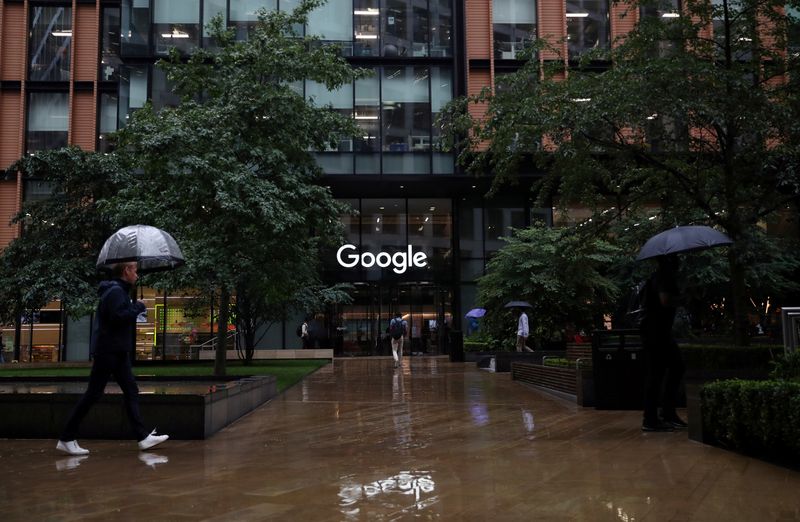By Paul Sandle and Muvija M
LONDON (Reuters) -Britain will use new regulatory powers to investigate Google (NASDAQ:)’s search services to see how they impact consumers and businesses, including advertisers and rivals, following U.S. calls to break up the tech giant.
The Competition and Markets Authority (CMA), which gained a wider remit over big tech this month, said search was vital for economic growth and it was critical that competition was working.
“Millions of people and businesses rely on Google’s search and advertising services – with 90% of searches happening on their platform and more than 200,000 UK businesses advertising there,” CMA boss Sarah Cardell said.
“It’s our job to ensure people get the full benefit of choice and innovation in search services and get a fair deal.”
UK regulators including the CMA have been told by the Labour government to prioritise measures that boost economic growth.
Responding to the probe, Google’s competition director Oliver Bethell highlighted in a blog post the CMA’s comment that search was vital for growth.
Google will engage with the CMA, and lay out how its services benefit consumers and businesses as well as the “trade-offs inherent in any new regulations”, he said.
“Digital services like Search will power new economic development in the UK,” Bethell said. “We welcome the recognition of … the need to align regulatory decisions with the government’s growth mission.”
Urging a pro-innovation, evidence-based regime, Bethell added that “overly prescriptive digital competition rules would end up stifling choice and opportunity for consumers and businesses”.
US PRESSURE
The CMA’s move comes after U.S. prosecutors in November argued to a judge that Google must sell its Chrome browser, share data and search results with rivals, and take a range of other measures to end what they called its monopoly on online search.
In August, a U.S. judge said Google had violated antitrust law, spending billions of dollars to become the world’s default search engine.
In the UK, Google is already in the CMA’s crosshairs, along with Amazon (NASDAQ:) and Microsoft (NASDAQ:) in the cloud computing market, while the regulator is also set to probe the Google-Apple duopoly in mobile browsers.
Under its new powers, the CMA must designate firms as having Strategic Market Status (SMS) in relation to a digital activity before it can investigate.
It said it would assess whether Google had SMS in both search and in search advertising, and whether it should then impose conduct requirements or intervene in the market.
It will examine barriers to entry and innovation in search and whether Google uses its market dominance to offer preferential treatment for its own services.
Google’s collection and use of large quantities of consumer data will also be looked at, it added.
The growth in AI-powered search engines, such as ChatGPT, could challenge Google’s dominance in the long term.

The CMA said it would examine whether Google was able to shape the development of new AI services and interfaces to counter this potential threat.
The result of the investigation, which will take up to nine months, could include requiring Google to make data available to other businesses or giving publishers more control over how their data is used, including in Google’s AI services.

